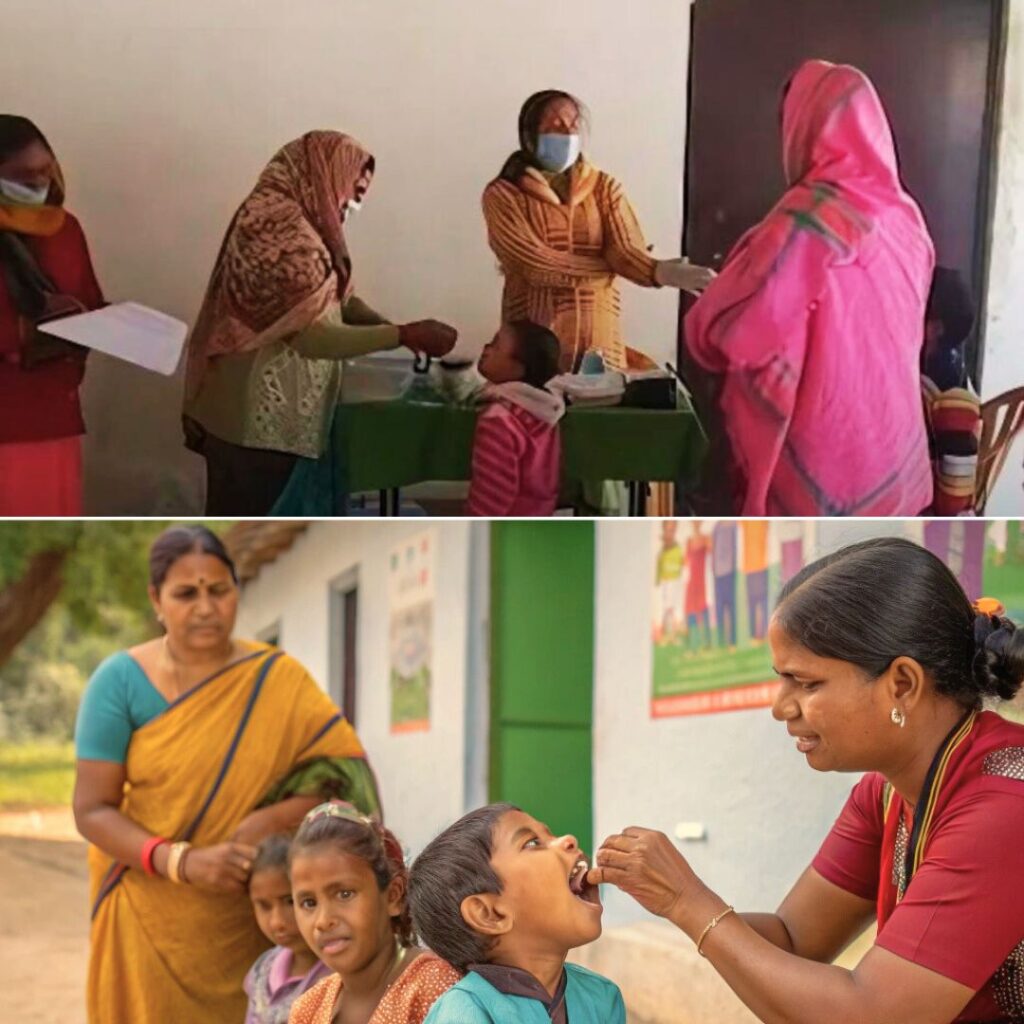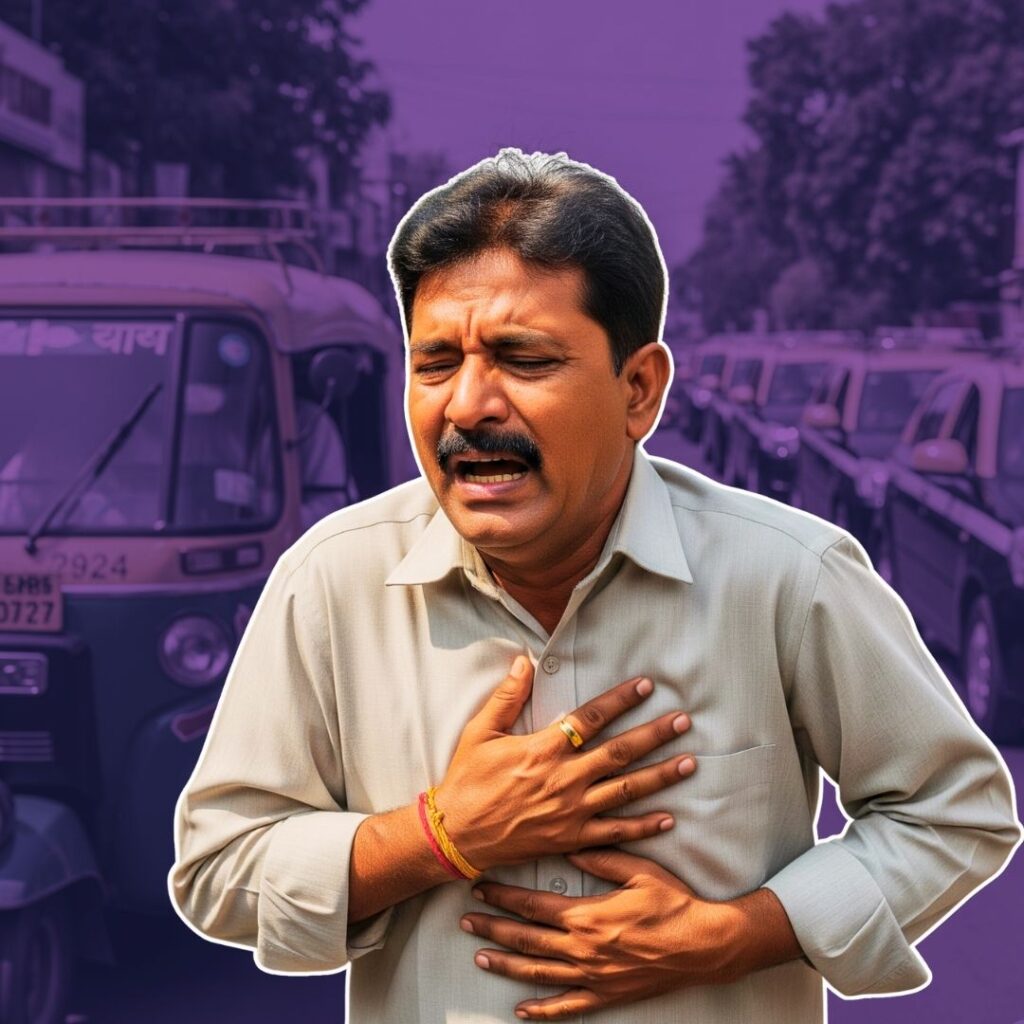If you are living in Delhi or in any other city of north India, hope you are nicely tucked in or at least wrapped up in two layers of woolens cause it is really cold out there right now. Not to be cruel or anything but that’s how some people die on the roads. Not having any woolen on their body as they struggle through the really chilly and windy nights out in the open.
That’s probably how 6 years old Bano felt when she hugged a dead body to deal with the cold, outside the LNJP hospital in Delhi. Her story dates back to the origin of Goonj. It’s her statement that makes winter is an annual disaster for people who don’t have enough cloth. Anshu Gupta, Founder Goonj met Habib Bhai when he had just finished his journalism studies.
Like any enthusiastic young journo, Anshu roamed around the Delhi roads looking for a story. That’s when he saw a rickshaw with a strange line written on its back “lawaris laash uthane wala”. That rickshaw belonged to Habib Bhai who lived on a pavement outside LNJP hospital in Delhi. He picked up abandoned dead bodies for the Delhi police. Anshu spent a week with Habib Bhai trying to understand the intricacies of this strange profession. That’s when Bano innocently told Anshu that, “when I feel cold, I hug the dead body and sleep. It does not trouble me, it does not turn around.”
Facts about winter deaths in India
Government statistics reveal that winters are the second major reason for deaths in India after lightening. Surprisingly floods come third on this list. Statistics show that till 2007, 826 people died every year due to harsh winters in India. The death toll started to increase after 2007 due to a drop in winter temperatures. Between 2002 and 2012, as many as 10,740 people died from exposure to cold and avalanche. The fact remains that hundreds of deaths in winters are considered normal deaths only and there is hardly any effort to find the exact reason.
Difficulties faced by villagers during winters
Habib Bhai said to Anshu “In winters my work goes up. Sometimes there is so much work that I find it difficult to handle.” Anshu found that in a radius of 5-6 km where Habib Bhai could take his Rickshaw, in winters he would pick up 11-12 dead bodies daily on an average. In summers the number dwindled to almost half. When you really think about it, ‘it is not the COLD that kills people it is the lack of clothing that does.’ Lack of clothing is also the reason people succumb to the cold wave.
Back in 2009-2010 Goonj’s partner organization Prayas Shiksha Samiti (Mandla, MP) mentioned about frequent accidents happening in their area due to fire in winters. Mandla is a poverty stricken tribal land where people didn’t even have enough to eat. Clothing was, therefore, a secondary need they were struggling with. Typically households would fill a sack with dried grass/husk and sleep in it, lighting a fire right next to them.
Just some time back in winters, Hare Singh, a local villager went off to sleep in the open courtyard of his home, with a fire lit next to him. At around midnight, the fire caught on the entire hut. The villagers managed to save his life. The burns left him disabled for life. In the harsh winters of 2010, Narbad Das (village Sinjhora, district Mandla) died while sleeping outside his hut to oversee his crop. There are many Hare Singh’s and Narbad Das’s in rural India who put their lives in danger. They remain awake the whole night next to ‘Alaav’ (community fireplace) and go to sleep only in the morning, at the cost of their income and livelihood. These deaths are rarely reported and accounted for. People aren’t just struggling in Madhya Pradesh, the same is true for many in Uttarakhand, Bihar, Jammu & Kashmir, Uttar Pradesh, Chhattisgarh, and Jharkhand as well.
Goonj Winter Kits, comprising of clothes, woolens, sujnis/blankets among other things, for the entire family, are not only helping initiate large-scale development work it’s also making thousands of families’ cloth rich. Charan Parte, (a resident of Keolari Kala village, from Block Mawai, Mandla, MP where Goonj has been working) says “Every year we had to spend 2000- 3000 rupees on clothing for all my family members and given our financial condition, we used to take it on high-interest loans but from the last many years I do not remember having spent anything on clothing. Now we have enough.”
Uttara Padwar, from Prayas Shiksha Samiti’s (MP), informs that from the time they have partnered with Goonj the incidences of people dying in cold have dropped significantly. Similarly, Winter Kits were reached out in big numbers to Uttarakhand and J&K when winters turned out to be the second disaster for the people of flood-hit states.
On an impact assessment visit to Khandwa region (MP), Goonj found that woolens provided by Goonj were turning to be a big boon to the malnourished children admitted to the hospital. When woolens and blankets reached many villages in the region, the villagers…











